Japan has at least fifty (50) breeds of chicken. In fact, they have a long breeding history that dates back to Meiji Era. One of them is Awaodori which comes from Tokushima Prefecture.
What is Awaodori?
Awaodori is the result of crossbreeding a male Shamo chicken and other superb chicken breeds. The Livestock Research Institute of Tokushima developed it more than two decades ago. Meanwhile, they named it after the traditional dance called Awa Odori.
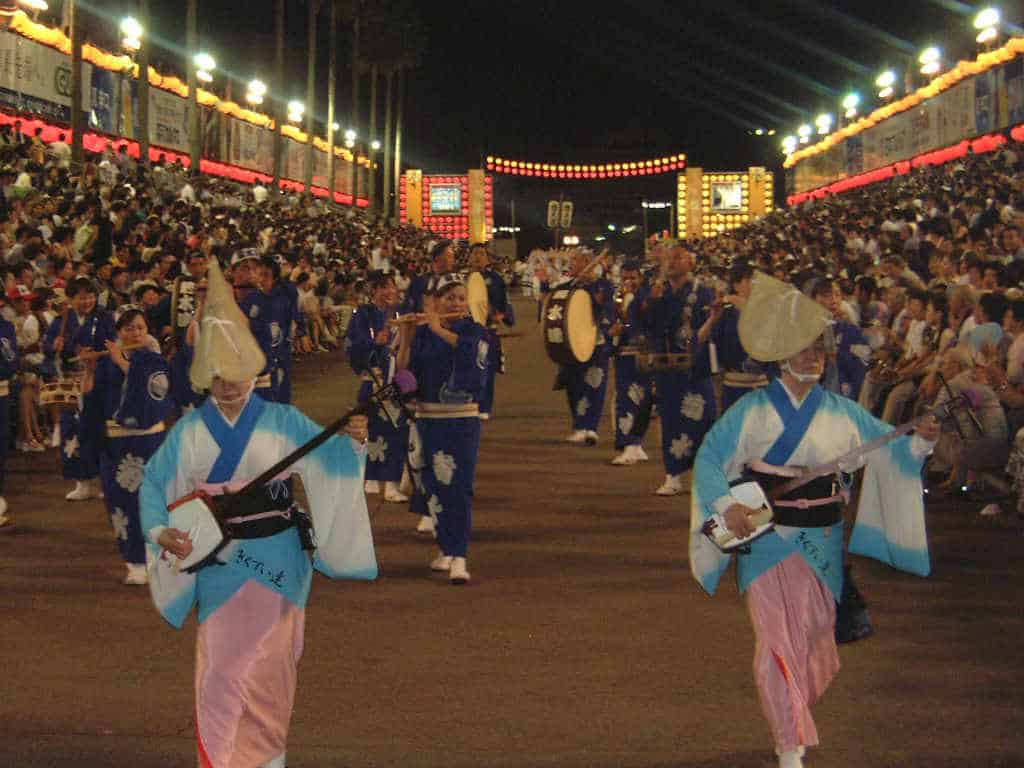
Awa Odori dance is of the most famous traditional dances in Japan. People flock to the Awa Odori Festival (Awa Odori Matsuri) to watch the “Fools Dance”. This event is during Obon season which is around mid of August. “Awa” is the old name of Tokushima while, “Odori” means chicken.
In order to maintain the quality of the chicken meat, local farms must oblige to the following standards:
- The duration of breeding must be at least eighty (80) days or more.
- The ratio of the combination must also be fifty percent (50%) or more from a Japanese specie.
- Farmers must raise the chickens in a spacious area with only ten (10) birds or less per square meter.
The criteria above are according to the specific JAS standard for local chickens. As a matter of fact, they implement these standards strictly.
Awaodori also became one of Tokushima’s livestock brands together with Awa beef and Awa pork. These three livestock products are rated high-class by standards. Just like Tokushima Ramen, it is one of the must-try foods in Tokushima.
What is the history and origin of it name?
Chicken is one of the most common livestock worldwide. According to Statista.com, a survey in 2021 shows that poultry consumption around the world rises to 133.35 kilotons. They also expect it to increase to 151.83 kilotons by the year 2030. That’s about a 13.85% increase in comparison with the 2021 global consumption.
The production of Awa Odori started when the chairman of the Tokushima Poultry Association wanted to produce local chicken. Then, he consulted the Livestock Research Institute of Tokushima to begin the development of high-class chicken meat.
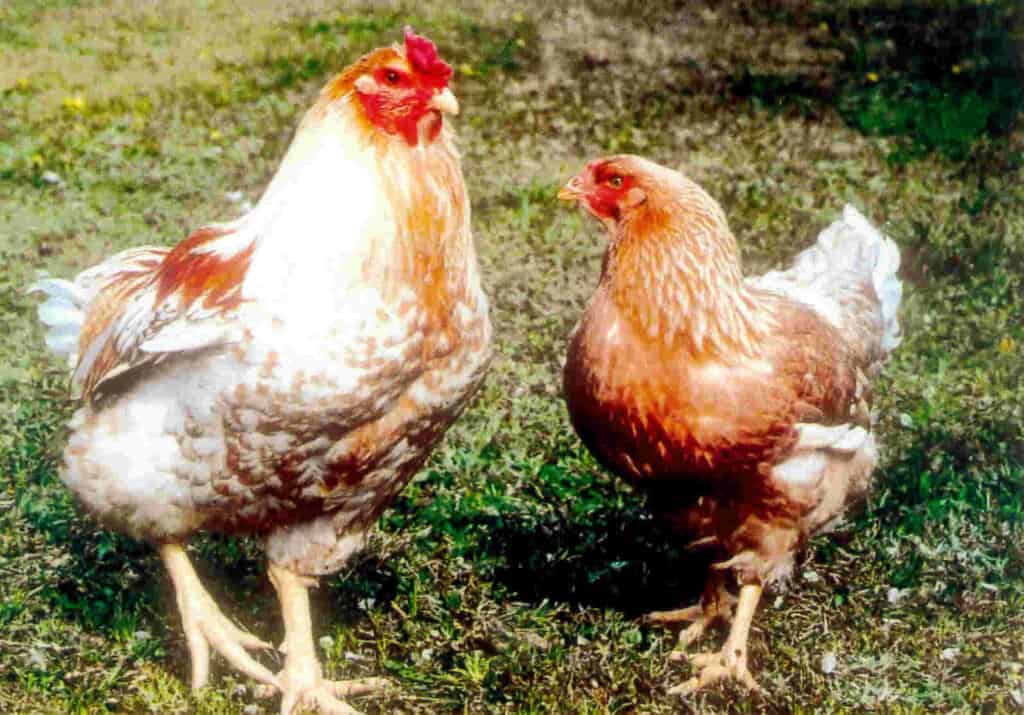
During this time, they began improving the cross-breeding of Shamo and other local chicken species. In fact, the mountainous area of Tokushima already has a long history of producing “Akasasa Shamo Chicken”. With this in mind, the initial period of breeding was for ninety (90) days.
The first study shows that the chickens have a rough temper. Also, the weight of offspring produced was small. Thus, making it hard for them to commercialize it.
In 1989, the researchers have successfully developed a breed that reaches its target weight within eighty (80) to eighty-five (85) days. The name also originates from the traditional dance due to its dynamic appearance.
However, it didn’t become successful until the establishment of the Onaruto Bridge in 1998. This led to easier means of transportation which resulted in to increase in volume demand. Because of this, it also rises to number one in terms of production.
Eventually, Awaodori becomes the first local chicken that was rated by Japan Agricultural Standard in 2001.
What are the characteristics of Awaodori?
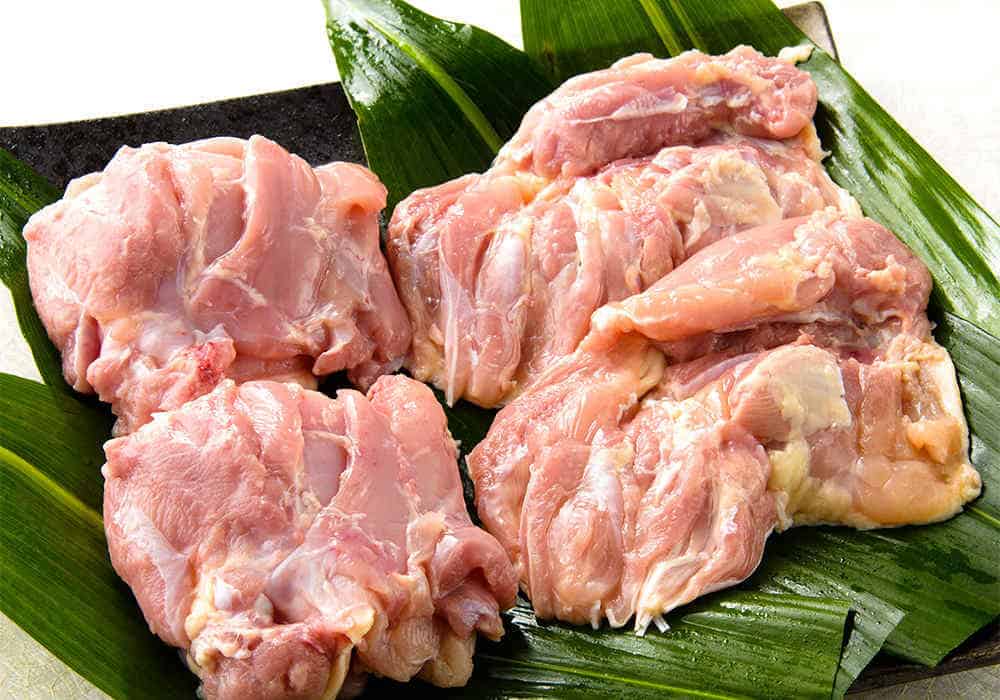
The meat is firm and the color is a bit reddish. It’s also not greasy and has a chewy texture. On the other hand, it has a strong taste which is of high quality.
Another thing to note is that it is low in fat due to the type of feed the chickens are consuming. Awaodori meat also tastes a bit sweet but rich in umami flavor.
Awaodori Health Facts
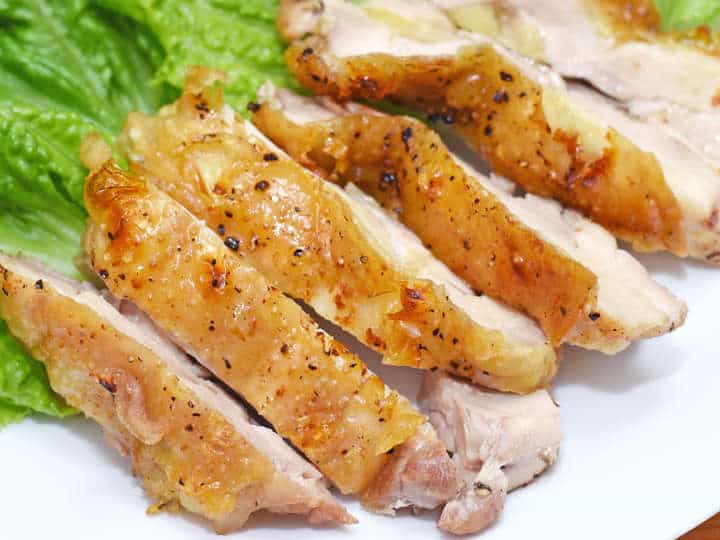
Not only that Awa Odori is low in fat, but it’s also high in protein. Moreover, it has higher umami ingredients that dried bonito. This is due to the compound feed that the developers are feeding to the chicken. They use leftovers from the process of making olive oil. Therefore, the chicken meat has amazing umami flavor.
Awaodori meat is also rich in inosinic acid. This chemical compound is usually used to help enhance the flavor of chicken products. In addition to that, it also helps in boosting metabolism.
Another key health benefit of chicken meat is that it’s a good source of amino acids. It provides energy to our bodies and supports our immune system. It can also regulate digestion and aid production of hormones.
Awaodori Recipe
Of course, just like any other chicken meat type, there are many ways to cook Awaodori meat. You can enjoy the rich umami flavor with any chicken recipe you can think. Below are some of the most popular recipe of Awaodori.
Grilled Awaodori
It is no secret that Japan offers a variety of grilled cuisine. In fact, almost every region boasts traditional grilled dishes that are worth to try. They also love to use iron grill plates to enhance the flavor of these regional cuisines.
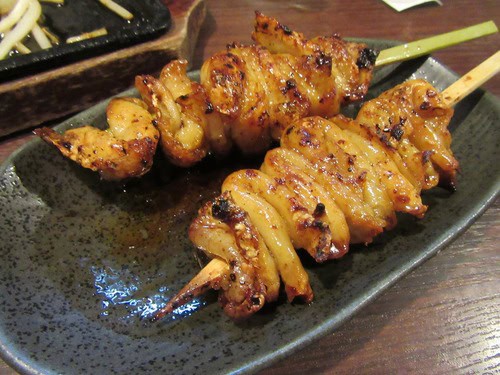
For example, Hokkaido has ChanChanYaki which is grilled salmon and vegetables. While Miyazaki has Miyazaki Jittoko which is also grilled chiken. Locals cook these traditional foods using iron grill skillets. Not only that the food doesn’t stick to iron grill pans, but it also has better distribution of heat.
You can enjoy a plate of grilled Awaodori that has rich umami flavor. The chewy meat compliments the smokey flavor of the dish.
Yakitori is arguably the most common method of serving and eating Awaodori.
Awa odori Ramen
While Tokushima Ramen is famous in the area, Awaodori Ramen is also becoming the next big ramen thing. Tokushima Ramen’s main toppings are raw egg and chashu. Meanwhile, Awaodori Ramen offers a rich umami of chicken meat as its main ingredient. This ramen variant is nutritious and uses Tsukemen noodles.
Awaodori Flakes
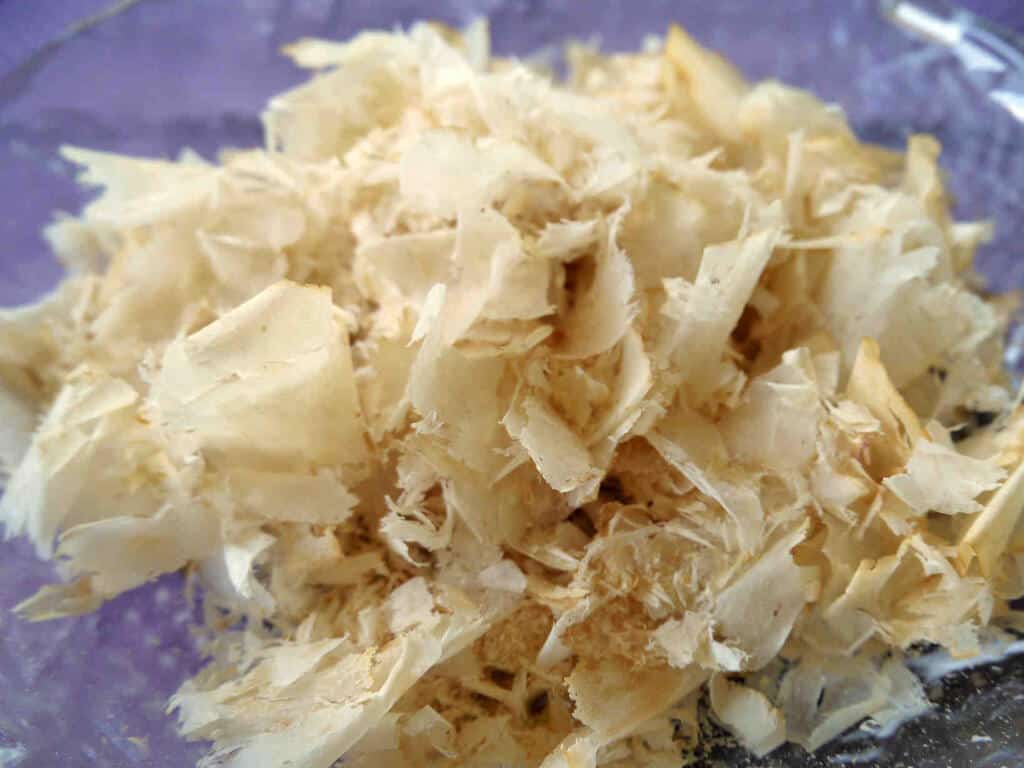
While dried bonito flakes are famous worldwide, Awaodori flakes is also as good. It’s high in protein and it doesn’t have seasonings. The color also appears lighter compared to dried bonito flakes.
Crispy Fried Awa odori
Who doesn’t love fried chicken? Crispy fried Awaodori with just salt and pepper already tastes divine! What more if it comes with breading? Kids and even adults will surely love this recipe together with a bowl of rice or mashed potatoes.
What restaurants serve Awaodori?
You can go to local stores to buy both fresh and frozen Awaodori meat. However, you can also conveniently order it online. But, you can visit shops if you want to experience it in a traditional way. Here are some local restaurants in Tokushima that serve authentic and flavorful Awaodori dishes.
Domannaka Japanese Style Dining and Bar (和風ダイニング どまん中)
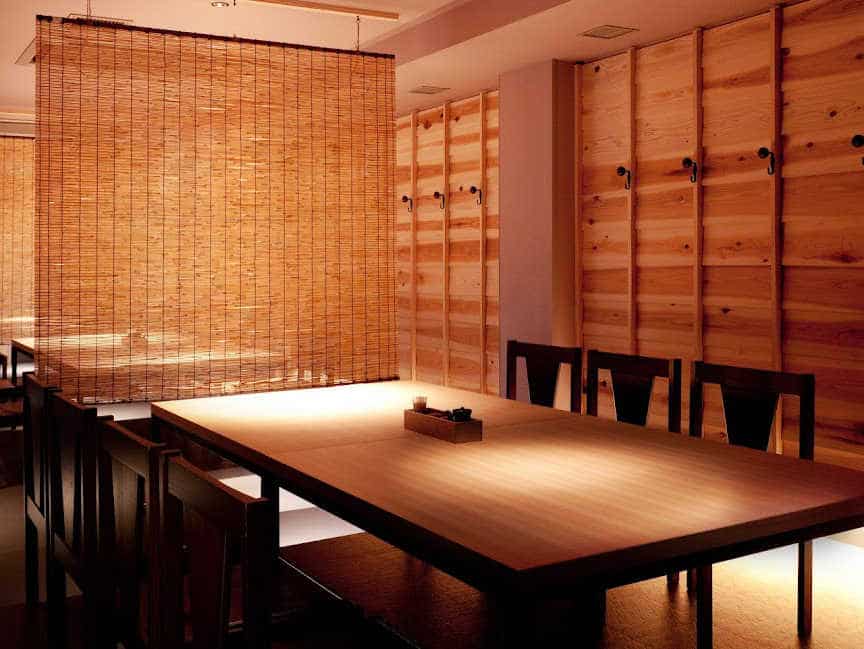
This restaurant is located just two minutes (2 minutes) away from JR Tokushima Station. Domannaka serves authentic Japanese cuisine which includes grilled Awaodori in skewers. They also have other dishes such as nabe and tempura. Even so, they are famous for their wide selection of sake.
Odori

This restaurant offers fresh ingredients from local farmers of Tokushima. Odori is famous for their huge serving of burgers. Every bite comes with a burst of crispiness and rich umami flavor of crispy Awaodori.
On the other hand, their roasted Awaodori is also another dish to try. Odori’s popularity grew by word of mouth. They also have reasonable prices for their meals that are made with locally-produced ingredients.
Awao Chicken Chinese Soba Aian (阿波尾鶏中華そば 藍庵)
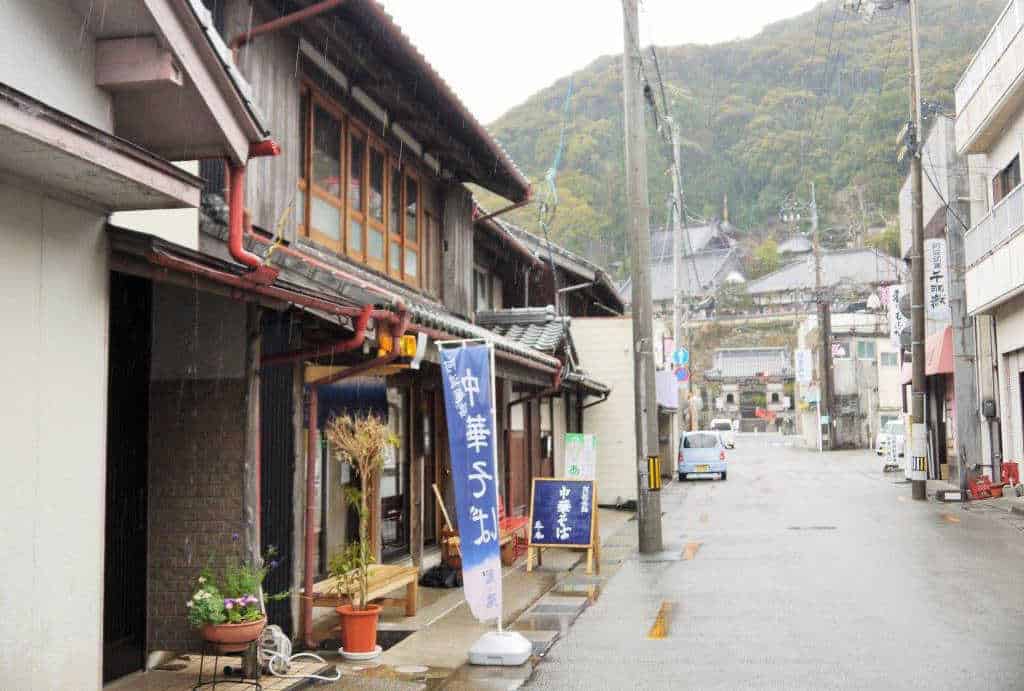
The famous Iron Momojiro from Tokyo opens a store in Tokushima. Aian uses the local ingredients from Tokushima to create an excellent cuisine. Consequently, their Awaodori Ramen is a medicinal food for travelers as it gives energy to them. The soup also includes jujube and ginseng which helps in recovering from fatigue and indigestion.
Takeaway
Awaodori is a high-quality chicken meat from Tokushima Prefecture which name comes from Awa Odori dance. It’s a result of years of research and development. Awaodori is rich in umami flavor and is usually grilled in iron skillet. It’s definitely worth the try when visiting the Island of Shikoku.
Check other great local food from Tokushima Prefecture here. You may also follow us on Facebook to stay updated with our latest food recommendations.

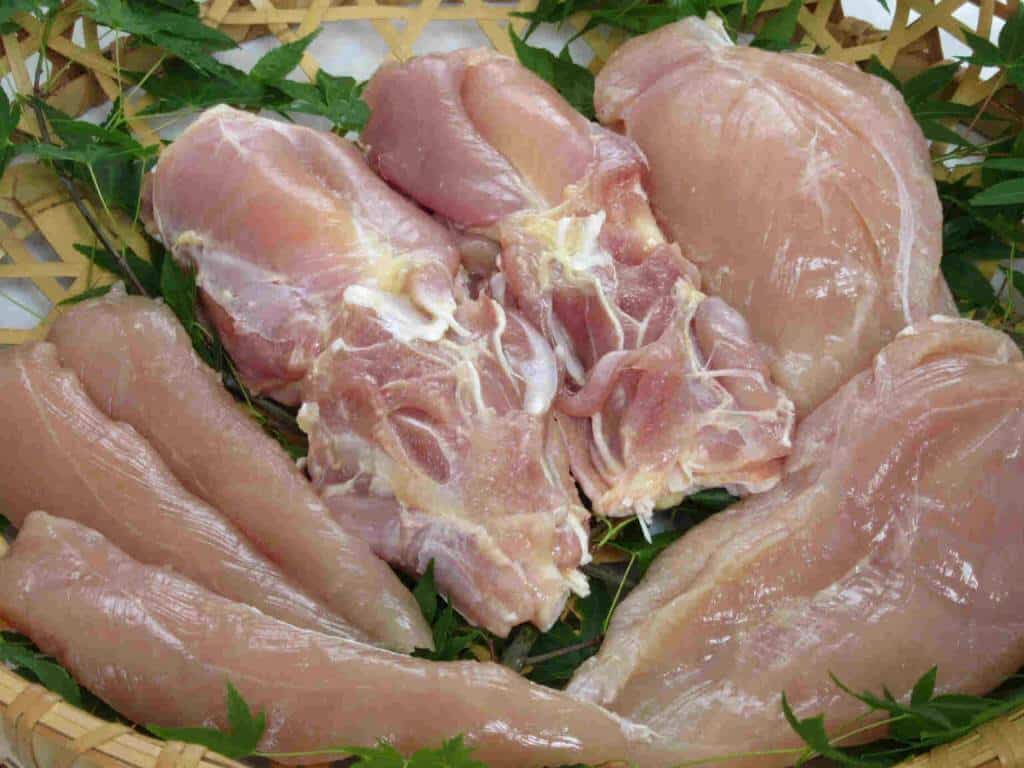
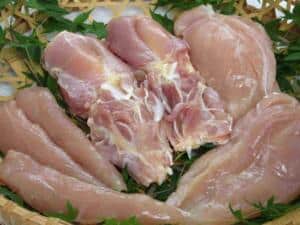
Comments